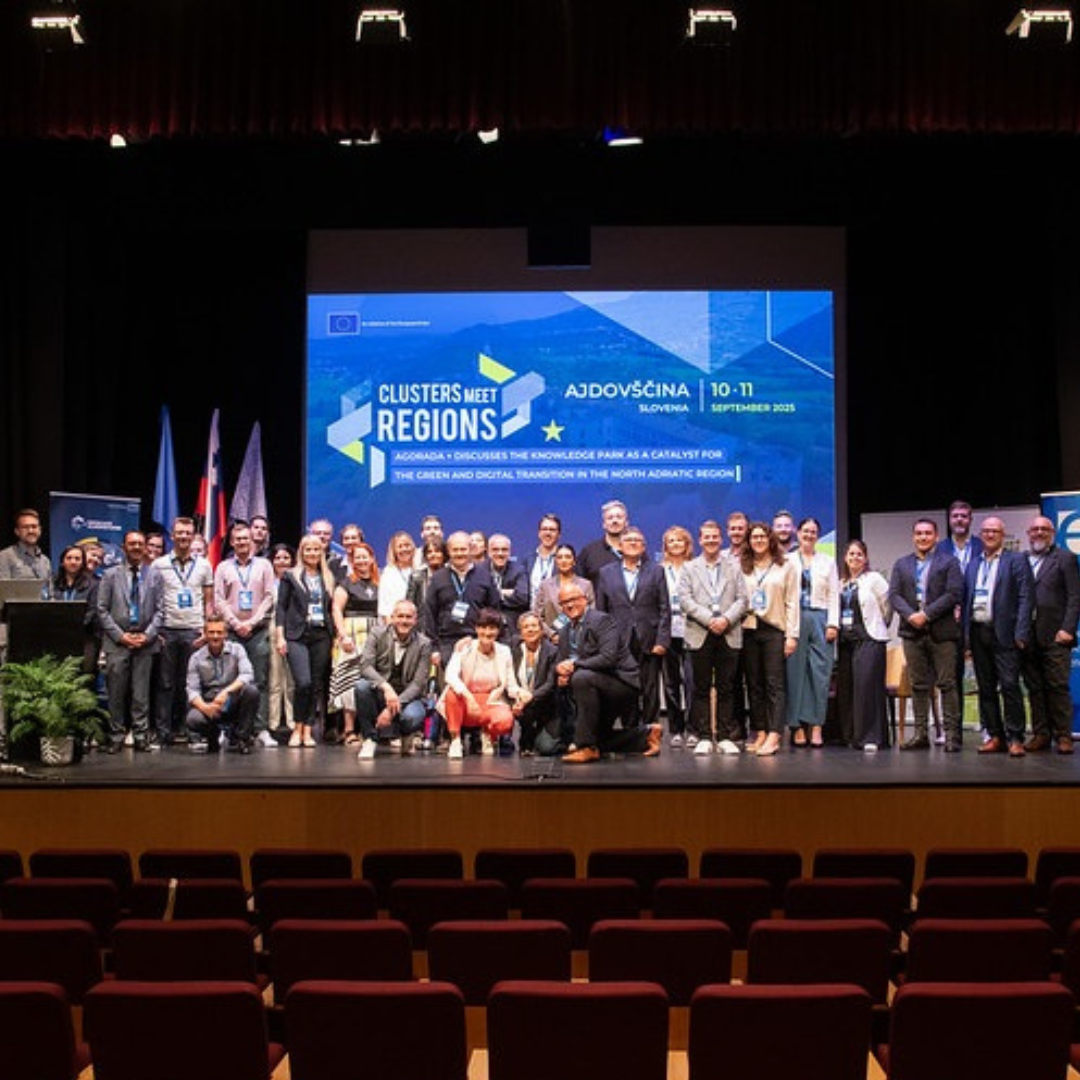Ajdovščina, located in western Slovenia near the Italian border, is home to the Knowledge Park – a vibrant innovation ecosystem integrating industrial, academic, and policy actors. With strong cluster activity in green technology, sustainable agriculture, and advanced manufacturing, the region offers a compelling backdrop for discussing how place-based innovation can support Europe’s twin transition. The Knowledge Park was in fact presented during the event opening by the Mayor Tadej Beočanin: an 18-hectare site focused on biotech, aviation, and applied research, expected to create 100 jobs in its first phase. The first day featured insights from Dr. Jan-Philipp Kramer (ECCP/Prognos) on the North Adriatic’s innovation potential, with Western Slovenia now ranked a “Strong Innovator” in the 2025 Regional Innovation Scoreboard. Representing the Directorate-General for Industry, Entrepreneurship and SMEs of the European Commission, Christophe Guichard highlighted the importance of clusters in implementing EU industrial policies such as the Competitiveness Compass and the Clean Industrial Deal.
Roundtables and discussions throughout the day showcased the human and structural dimensions of innovation ecosystems. Tine Tomažič from Pipistrel Aircraft stressed that talent must be attracted with purpose and stability, while Dr. Matjaž Valant from the University of Nova Gorica noted the need to strengthen research–industry cooperation. Cross-border experiences from the North-Adriatic region were also featured, such as BioTech2Agri presented by the Venetian Cluster and systemic portfolio approaches from Climate-KIC. The day concluded with a co-creation workshop on building smart innovation ecosystems and a cultural evening linked to the GO!2025 program, with Nova Gorica and Gorizia joint European Capitals of Culture 2025, where participants connected with local culture, and enjoyed authentic regional gastronomy in a special setting.
The second day, AGORADA+, EURADA members took centre stage, sharing how their agencies are turning European strategies into practical regional solutions. RRA Podravje–Maribor (Slovenia), represented by Dr. Amna Potočnik, underlined that transformation requires behavioural change alongside technology adoption, stressing the importance of designing greener everyday practices. From Croatia, Development Agency Zagreb, represented by Kornelija Mlinarević, showcased how combining EU and local funds is enabling climate-neutral urban regeneration, energy efficiency projects, and nature-based solutions that directly benefit citizens. Meanwhile, RDA Primorje–Gorski Kotar, with Vedran Kružić presenting, highlighted the RIMAP matchmaking platform, which connects more than 300 stakeholders – from SMEs to universities – to funding opportunities and collaborative projects.
In the following panel bringing regional perspectives for Europe’s strategic autonomy, EURADA Director Francesco Molica underlined that without a territorial lens, European industrial strategies risk deepening regional disparities. Discussions highlighted how RDAs, in partnership with clusters, can anchor Europe’s industrial transition in local strengths – from hydrogen pilot projects to resilient food systems.
Afternoon site visits brought theory into practice: participants discovered the Ajdovščina Business Incubator, Pipistrel’s clean aviation technologies, Incom’s international ice cream production, and innovative smart-farming projects developed by the Municipality of Ajdovščina.
Ajdovščina stood out as a model of how local action can align with European priorities, and the North Adriatic region as a strategic corridor of ideas, cooperation, and sustainable transformation. The event demonstrated that even smaller towns can act as strategic players in Europe’s industrial transition by fostering collaboration between clusters, RDAs, academia, and SMEs.
Check out the upcoming Clusters Meet Regions event series here.
